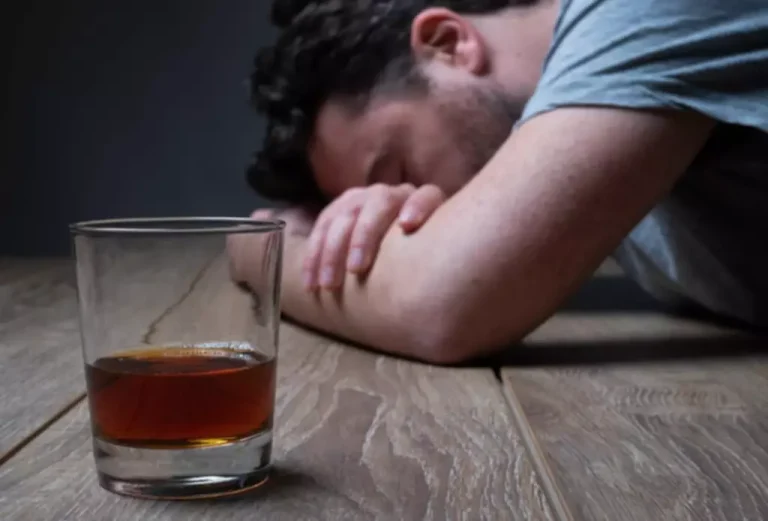Making Amends: A Crucial Part of the 12 Steps

That’s normal, and you don’t have to respond right away. However, there are situations where it might not be appropriate. If approaching the other person opens up old wounds or re-traumatizes them, making amends isn’t advisable. If interacting with someone re-traumatizes you, or increases your risk of relapse, you might want to reconsider approaching them. You may have a list of people you want to make amends to personally.
Advance Directive Forms

Undertaking the process of making amends necessitates careful thought and consideration. It’s important to be mentally prepared for different types of responses and to have a plan in place to manage these responses, which can be processed with a sponsor or support group. An effective acknowledgment is free from excuses, focusing solely on the harm caused rather than attempting to justify the behavior that led to it. Acknowledging the damage caused, though challenging, is a critical step for our recovery. The script also aids in initiating the amends process with an outreach message to confirm if the person is open to receiving an apology.
How Soon Do I Start to Make Amends Once I Am Sober?
When someone struggles with addiction, they are not the only ones affected. Individuals battling substance abuse can become different versions of themselves and make decisions or behave in ways that hurt their loved ones. Addiction is often isolating, which can make quitting difficult. With proper treatment, individuals can become sober and turn their lives around. In a sober living house, members can transition out of treatment and adjust to their new substance-free lifestyle.
Recovery Stories
- Today, I know my words have value whether they pay attention or not.
- Step Nine states that we make amends «except when to do so would injure them or others.» We don’t want our actions to cause further damage, harm or stress.
- This is a list of all of the people in your life whom you believe you have harmed.
Maybe they got sick of watching the addiction destroy us and our family. Maybe they are guarding their heart because they are afraid we might relapse or say something hurtful. One very effective way to make amends is to go to treatment. At FHE Health, you’ll learn more about Step 9 and how to handle the worst of experiences. For many, this is one of the most important components of recovery, because it allows them to work on rebuilding their relationships and letting go of those they cannot repair.

When someone is alive and you’ve hurt them, amends are more straightforward. You might go to that person and take responsibility for what you have done wrong, express you deep remorse, and ask what you can do to make it up to them. You may couple that making of amends with a request for forgiveness. We can go to them directly and work through it (or at least try). The amends I made to her was admitting my wrongs and shortcomings due to my addiction. My living amends is being the son she deserves–someone who will do for her as she has always done for me.
Guide to Step 9 and Making Amends

If someone does not want to hear from us, we respect that and do our best to move forward with our recoveries. We can also make amends by living very purposefully within the bounds of our principles. Many people find that the support they receive from AA meetings helps them prepare to make amends. Talking with your sober community about your history with drugs or alcohol can help you identify what you need to make amends for. These changes in behavior help toward the goal of reestablishing relationships or making them stronger. These promises are often the most difficult to keep because addiction plays a decisive role in a person’s ability to live up to their promises.
I don’t call him to see how his meeting went this week or what step he’s on. Nor do I play the peacemaker between him and our Mother. If he specifically living amends asks for my opinion, which he doesn’t, I will give it. When you’re ready to make amends, you can find support to guide you through the process.
- In the midst of your ninth step, you say to him “I’m so sorry that I stole that money from you and used it for drugs”.
- We believe everyone deserves access to accurate, unbiased information about mental health and addiction.
- This shows a willingness to make right that which was wrong.
- Teasing out the difference between guilt and regret can be tough.
- We also provide regular drug and alcohol testing, professional peer recovery support programming, a three phase recovery program, volunteer placement services, and employment and educational support.
- The willingness to make amends lays the groundwork for genuine attempts at reconciliation and restitution, and improved relationships with others and ourselves.
- The goal in making amends is “to freely admit the damage we’ve done and make our apologies,” according to The Big Book.
- They want to find ways of making up for all their past wrongs, and they don’t want to miss the opportunity to do so once their loved one dies.
- When you make amends, you acknowledge and align your values to your actions by admitting wrongdoing and then living by your principles.
Living amends involve this daily dedication to avoiding new wrongdoings as evidence of growth. Taking the time to let the other person express how they were affected can promote a more effective healing process, as well as make things less ‘about us’ and more about the person affected. It’s also important to have a plan and be prepared for different possible reactions, with guidance from a sponsor and support group of some kind. We must refrain from deflecting responsibility onto others or justifying one’s harmful actions while expressing remorse, or it discounts the whole activity.


Dejar un comentario
¿Quieres unirte a la conversación?Siéntete libre de contribuir!